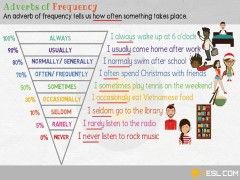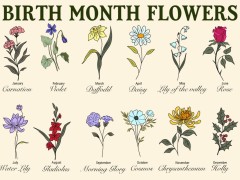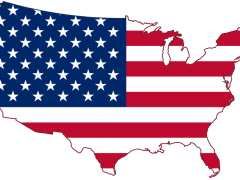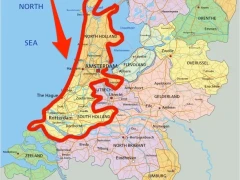Greece [ɡriːs] n. 希腊
* * *
A: I have never been to Greece before.
B: Really? You have a chance this time.
A:我以前没有去过希腊。
B:是吗?这次你有机会了。
* * *
climate [ˈklaimit] n. 气候
country [ˈkʌntri] n. 国家
【扩】state 国家
【搭】foreign country 外国
* * *
A: Have you ever played golf in your country?
B: No, but I hear that you have many beautiful courses.
A:你在你们国家曾经打过高尔夫球吗?
B:没有,但我听说你们有许多漂亮的球场。
* * *
pleasant [ˈplezənt] adj. 宜人的
【扩】agreeable 惬意的 cheerful 令人感到愉快的
* * *
A: It's breezy and pleasant today.
B: Yes, let's go out for a picnic, shall we?
A:今天凉风习习,天气宜人。
B:是啊。我们去野炊怎么样?
* * *
weather [ˈweðə] n. 天气
【扩】foggy 有雾的 sunny 晴天的
【搭】under the weather 不舒服
weather forecast 天气预报
weather report 天气预报
* * *
A: How's the weather like there?
B: It's said that it's very cold there.
A:那儿的天气怎么样?
B:据说那儿很冷。
* * *
spring [spriŋ] n. 春天
【派】springhead 源头
【搭】Spring Festival 春节
spring ploughing 春耕
* * *
A: I want to go to the Yellow Mountains this summer vacation.
B: I went to the Yellow Mountains last spring. It's worth seeing.
A:我今年暑假想去黄山。
B:我去年春天去过黄山,很值得一游。
* * *
windy [ˈwindi] adj. 有风的
* * *
A: Is it very cold and windy in winter here?
B: Yes, you said it.
A:这儿冬天寒冷多风吗?
B:是的,你说对了。
* * *
warm [wɔːm] adj. 温暖的
【派】warmhearted 热心的
【搭】warm up 热身
* * *
A: It's really warm today.
B: Yes, it's about eighteen degrees centigrade.
A:今天确实很暖和。
B:是的,今天气温摄氏18度左右。
* * *
rain [rein] v. 下雨
【派】rainy 下雨的 raincoat 雨衣
【搭】rain off 因下雨而取消
* * *
A: It's raining heavily outside.
B: Can you lend me a raincoat?
A:外面雨下得很大。
B:你能借一件雨衣给我吗?
* * *
sometimes [ˈsʌmtaimz] adv. 有时
summer [ˈsʌmə] n. 夏天
【搭】summer holiday 暑假
* * *
A: The best time to tour here is in winter, right?
B: Yes. But in summer, it is also a good place to visit.
A:到这儿来观光的最佳时间应当是冬天了,是吧?
B:是的,可是夏天这儿也是一个很好的去处。
* * *
autumn [ˈɔːtəm] n. 秋天
【扩】fall 秋天
【搭】Mid-autumn Day 中秋节
in autumn 在秋天
* * *
A: My favorite season is autumn.
B: I like autumn most, too.
A:我最喜欢的季节是秋季。
B:我最喜欢的季节也是秋天。
* * *
winter [ˈwintə] n. 冬天
【搭】a hard winter 寒冬
winter holiday 寒假
* * *
A: I admire plum blossoms very much. It seems that only it can blossom in the cold winter.
B: You have a perfect taste!
A:我非常喜欢梅花,好像只有梅花才能在寒冷的冬天怒放。
B:您真有品味。
* * *
snow [snəu] v. 下雪
【派】snowy 多雪的 snowman 雪人 snowball 雪球
【扩】ice 冰
* * *
A: She wonders whether it would snow tonight or not.
B: I didn't hear the weather forecast.
A:她想知道今晚会不会下雪。
B:我没听天气预报。
* * *
January [ˈdʒænjuəri] n. 1月
February [ˈfebruəri] n. 2月
March [mɑːtʃ] n. 3月
* * *
A: March 8th is the International Women's Day.
B: Yes, I don't need to go to work that day.
A: 3月8日是国际劳动妇女节。
B:是的,那天我不用去上班。
* * *
April [ˈeiprəl] n. 4月
【搭】in April 在4月
* * *
A: The application must be handed in before April 3rd.
B: I'll try my best to finish it before then.
A:申请书必须在4月3日以前交上来。
B:我会尽力在之前完成的。
* * *
May [mei] n. 5月
* * *
A: We started the project in late May.
B: When do you think you can finish it?
A:我们是5月底开始这个工程的。
B:你认为你们什么时候能够完成?
* * *
June [dʒuːn] n. 6月
* * *
A: June 19th is Karl's birthday.
B: What would you like to send him as his birthday present?
A: 6月19日是卡尔的生日。
B:你想送什么东西给他当生日礼物?
* * *
July [dʒu(ː)ˈlai] n. 7月
* * *
A: Summer vacation normally starts in early July.
B: Yes, it often lasts two months.
A:暑假一般在7月初开始。
B:是的,一般会持续两个月时间。
* * *
August [ˈɔːɡəst] n. 8月
【搭】on August 3rd 在8月3号
* * *
A: He is going to marry Kelly in August.
B: Where will the wedding be held?
A:他打算8月和凯利结婚。
B:婚礼在哪儿举行?
* * *
September [səpˈtembə] n. 9月
* * *
A: I often go climbing in September.
B: Maybe I can join in next time.
A:我经常在9月份去爬山。
B:也许下次我可以和你一起去。
* * *
October [ɔkˈtəubə] n. 10月
* * *
A: Are you busy with your work this month?
B: Yes, I have put off my holidays until October.
A:这个月你工作忙吗?
B:忙,我已经把我的假期推迟到10月。
* * *
November [nəuˈvembə] n. 11月
* * *
A: Our lease will expire on November 30th of this year.
B: Do you want to renew it?
A:我们的租约今年11月30日到期。
B:你们想续租吗?
* * *
December [diˈsembə] n. 12月
Lesson 52 What nationality are they? 他们是哪国人?
Where do they come from? 他们来自哪个国家?
the U.S. 美国
| Brazil n. 巴西 | Holland n. 荷兰 | England n. 英国 | France n. 法国 | Germany n. 德国 |
| Italy n. 意大利 | Norway n. 挪威 | Russia n. 俄罗斯 | Spain n. 西班牙 | Sweden n. 瑞典 |
noun [专属名词]希腊(欧洲南部国家) - They met while on holiday in Greece.
noun [抽象名词]气候;气候区;氛围,局势 - The economic climate remains uncertain.
noun [具体名词]国,国家;全国人民,全体国民(the country);乡下,乡村;地区,区域;乡村音乐;故乡 - Australia's a big country.
adjective [原级]乡下的,农村的;乡村音乐的;祖国的,故乡的;粗鲁的 - I'm a simple country girl.
- the country 在乡下
- in the city 在城里
- in the village 在 村 里
- in my country 国家
- Which country do you come from?
- He had planned to settle down in the country.
adjective [原级]令人愉快的,惬意的;礼貌而友善的,和蔼可亲的 - Someone who is pleasant is friendly and likeable.
noun [抽象名词]天气,气象;恶劣天气(指寒冷、潮湿等),自然力;气象预报;处境;气候 - The weather was bad.
verb [vt. 及物动词](受风吹雨打而)(使)褪色,(使)风化;平安度过(困境);(船)航行到(海角)的上风,安全绕过(海角);使(板,瓦片)交搭向下倾斜以挡雨;让(鹰)在露天栖息一段时间 - Unpainted wooden furniture weathers to a grey colour.
adjective [原级]露天的;迎风的 - What blooming awful weather!
noun [专属名词]【名】 (Weather)(英)韦瑟(人名) - Weather likes cold weather.
noun [抽象名词]春天,春季;泉,泉水;源泉,根源;弹簧,发条;弹性,弹力;跳,跃;活力,朝气;<罕>一群水鸭;朔望潮,大潮(spring tide 的简称);(船甲板)翘曲,弯曲;(厚木板、圆材的)裂开,裂缝;(航海)倒缆,斜系船缆 - They are planning to move house next spring.
adjective [原级]春天的 - Spring came late this year.
verb [vi. 不及物动词]跳,跃;突然弹开,突然移动;突然出现,涌现;突然启动,突然运转;突然向某人提供(或提出);<非正式>帮助…逃跑(或越狱),营救;发源于,来自;<美,非正式>付账(尤指请客);<古>花钱;<澳,非正式>突然发现,撞见(不正当活动或违法者);惊起(猎鸟),使(猎鸟)从躲藏处飞出;使爆炸;(尤指木料)翘曲,裂开;(船的桅杆或其他部分)翘曲,裂开 - He sprang to his feet, grabbing his keys off the coffee table.
noun [专属名词]【名】 (Spring)(美、瑞、英、加、德)斯普林(人名) - Spring is played solidly throughout the spring.
adjective [原级]多风的,风大的;夸夸其谈的,空话连篇的;<英>胃内气胀的;(道路,河流)蜿蜒的,弯弯曲曲的;<英,非正式>(人)紧张的,忧虑的 - It was windy and Jake felt cold.
adjective [原级]暖和的,温暖的;(衣服或建筑物)保暖的,防寒的;友好的,热情的;暖色调的;(尤指儿童游戏中)快要发现的,即将猜中的;(土壤)吸热快的,保温的;(猎)(气味,踪迹)新鲜的,强烈的;(声音)充满情感的,浑厚饱满的 - It's lovely and warm in here.
verb [vi. 不及物动词](使)温暖,(使)变暖和;(对某人) 产生好感,(对想法) 开始感兴趣;同情;激动;使…兴奋; (使)变得更友好,变得更可爱;<非正式>打(某人屁股) - It's quite warm at the moment.
noun [抽象名词]暖和的地方(或地区)(the warm);取暖;厚呢短大衣(British warm的简称) - It was nice and warm yesterday.
adverb [程度副词]温暖地 - Can we go somewhere warm?
noun [专属名词]雨,雨水;(热带地区的)雨季(the rains);(降雨般的)一阵,(大量的)降落物 - I hope you didn't get soaked standing out in the rain.
verb [vi. 不及物动词]下雨;(使)大量降落,雨点般落下;(使)如雨般地猛击 - It was raining hard, and she didn't have an umbrella.
adverb [频率副词]有时,间或 - During the summer, my skin sometimes gets greasy.
noun [专属名词]夏天,夏季;<文>年,岁;(建筑)大梁;(天文)从夏至到秋分这段时期;全盛期 - I escaped the heatwave in Washington earlier this summer and flew to Maine.
verb [vi. 不及物动词](在某地)避暑,过夏;夏天放牧(牛) - It's very hot here in summer.
noun [专属名词]【名】 (Summer)(德)祖默,(英)萨默(人名) - I saw him sometime last summer.
noun [专属名词]秋天,秋季;晚年,渐衰期;秋(从秋分到冬至) - Autumn is my favourite season.
adjective [原级]秋天的,秋季的 - I love the reds and golds of autumn.
noun [抽象名词]冬季,(天文)从冬至点到春分点的期间;<文>年,岁 - It had been a wet raw winter.
adjective [原级]冬天的,冬天出现的;用于冬天的;(水果)冬季才成熟的;(麦等)秋季播种来年收获的,越冬的 - Swallows migrate south in winter.
verb [vi. 不及物动词](在某处)过冬,越冬;使度过冬季 - It had been a hard winter.
noun [具体名词]雪,积雪;降雪,一场雪;下雪天;(因信号差出现在电视屏幕的)“雪花”干扰;似雪的菜肴;似雪的冷冻气体;<非正式>可卡因 - We drove through hail and snow.
verb [vi. 不及物动词]下雪,飘雪;<美,非正式>(用花言巧语)蒙骗,使相信;使洒落;使变白 - We always have snow in January.
noun [抽象名词]一月 - We always have snow in January.
noun [专属名词]二月 - He joined the Army in February 1943.
verb [vi. 不及物动词]齐步走,行军;快步走;强迫(某人)一起走,押送;游行示威;进行,进展 - The demonstrators then marched through the capital chanting slogans and demanding free elections.
noun [具体名词]三月(March);示威游行;行进,行军;稳步发展;进行曲 - After a short march, the column entered the village.
① v.(部队)行军,行进
② v.(威风凛凛/从容不迫地)走,迅速地走
- Jane marched out of the room without saying a word.
noun [专属名词]四月 - We went to Japan last April.
verb [情态动词]可能,也许(表示某情况是可能的);可以(征求同意或表示允许);可能(表示某情况属实,另一情况也属实);祝,愿(用于表达愿望);可以,能够(表明目的);可以,也许(用于提出礼貌的建议) - You use may to indicate that there is a possibility that something is true, but you cannot be certain.
noun [具体名词]山楂花;五月(May) - May is the fifth month of the year in the Western calendar. 5
noun [专属名词]六月;琼(人名,来源于拉丁语,含义是“年轻气盛的六月”) - He spent two and a half weeks with us in June 1986.
noun [抽象名词]七月 - In July 1969, Neil Armstrong walked on the moon. 1969
adjective [原级]威严的,令人敬畏的 - ...that august body, the United States Senate. …
noun [抽象名词]八月(August) - Grouse shooting begins in August.
noun [专属名词]九月 - We didn't make the original September 30 release date.
noun [专属名词][天] 十月 - The film festival takes place in October.
noun [专属名词]十一月 - She left back in November.
noun [专属名词]十二月 - I keep forgetting it's December.
noun [专属名词]美国 - The craze for roller skating spread throughout the U.S.
noun [专属名词]巴西(拉丁美洲国家) - It is France versus Brazil in the final.
noun [专属名词]荷兰 - Holland and the Republic of Ireland drew one-one.
noun [专属名词]英格兰 - At that time John ruled England.
noun [专属名词]法国;法郎士(姓氏) - The action takes place in France.
noun [专属名词]德国 - Germany hosted the World Cup finals.
noun [专属名词]意大利(欧洲南部国家) - The ship was bound for Italy.
noun [专属名词]挪威(北欧国家名) - Norway had held Holland to a scoreless draw in Rotterdam.
noun [专属名词]俄罗斯 - The play is loosely based on his childhood in Russia.
noun [专属名词]西班牙 - We had a good time in Spain.
noun [专属名词]瑞典(欧洲国家) - In the final game Sweden easily overcame France.




































